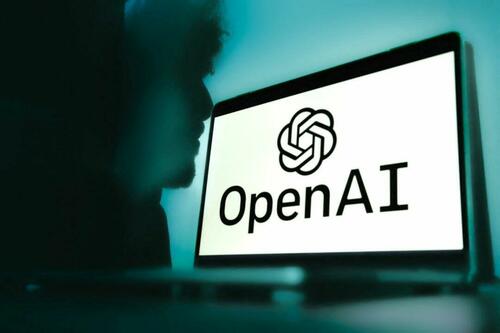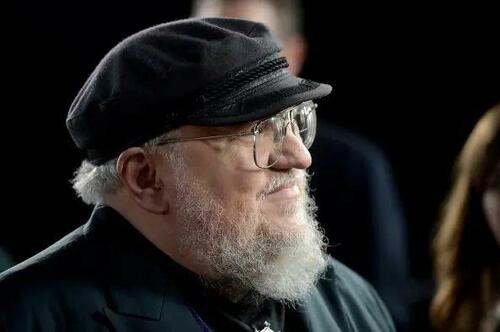OpenAI Must Face Copyright Infringement Claim From Authors, Court Rules
Authored by Naveen Athrappully via The Epoch Times (emphasis ours),
OpenAI must face allegations of copyright infringement made by authors in a consolidated class action lawsuit, District Judge Sidney H. Stein of the U.S. District Court for the Southern District of New York said in an Oct. 27 order.

In the June 13 consolidated complaint, the plaintiffs – writers who own copyrights for various books – accused OpenAI and Microsoft, which funds OpenAI, of having engaged in “flagrant and harmful infringements of their copyrights.”
“Defendants copied Plaintiffs’ works and then fed them into their ‘large language models’ or ‘LLMs,’ algorithms designed to generate human-like text responses to users’ prompts and queries. These algorithms are at the heart of Defendants’ massive commercial enterprise. And at the heart of these algorithms is systematic theft on a mass scale,” the lawsuit said.
OpenAI asked the court to dismiss the plaintiffs’ accusations of copyright infringement.
In the Oct. 27 order, Stein sided with the authors by denying the motion, observing that the allegations made by plaintiffs “satisfy the elements of a prima facie claim of infringement as to at least some outputs of ChatGPT.”
To train ChatGPT, OpenAI used datasets that included copyrighted words of the plaintiffs, the judge wrote. When prompted, ChatGPT can then generate accurate summaries of books authored by the plaintiffs.
In a court filing, OpenAI said plaintiffs failed to plausibly allege “substantial similarity” between their works and the content output by ChatGPT and that the complaint failed to cite even a single example of the alleged copyright infringement in ChatGPT’s outputs.
OpenAI argued that not all summaries of content qualify as infringement. For instance, summarizing the final chapter of “The Door” by Mary Roberts Rinehart as “the butler did it” cannot be considered as infringement of the author’s copyright, the company said.
Stein dismissed such arguments. For one, the complaint adequately alleges that OpenAI accessed plaintiffs’ works and the infringing outputs made by ChatGPT are based on the authors’ works, which satisfies the requirement of “actual copying,” he wrote.

Stein then detailed a ChatGPT summary of “A Game of Thrones,” the first book in the “A Song of Ice and Fire” series by George R. R. Martin. The AI summary described the setting, prologue, main plot points, and ending of the book.
“A more discerning observer could easily conclude that this detailed summary is substantially similar to Martin’s original work, including because the summary conveys the overall tone and feel of the original work by parroting the plot, characters, and themes of the original,” Stein wrote.
Martin is one of the plaintiffs in the lawsuit. Other plaintiffs include authors John Grisham and David Baldacci.
The Epoch Times reached out to OpenAI for comment but did not receive a response by publication time.
Authors Versus AI
The court ruling comes after AI company Anthropic, the maker of Claude AI, agreed to pay $1.5 billion over copyright infringement last month, according to a Sept. 5 post by law firm Banner Witcoff.
Anthropic was accused of using pirated copies of around 500,000 copyrighted works to train its AI, the post said. A court had previously issued a summary judgment on the issue, ruling that the use of pirated copies for training AIs does not qualify as “fair use.”
In a Sept. 25 statement, The Authors Guild, an advocacy group for published writers that is also a plaintiff in the OpenAI lawsuit, welcomed the preliminary approval of the Anthropic settlement.
“The settlement marks a milestone in authors’ fights against AI companies’ theft of their works. It sends a clear signal to AI companies that infringement of authors’ rights comes at a steep price and will undoubtedly push AI companies towards acquiring the books they want legally, through licensing,” the association said. “The case is also significant in that it serves as an example of how class actions can be a successful vehicle for seeking justice for mass copyright infringement.”
Multiple other legal battles have been waged by authors over the use of their works by tech companies for training artificial intelligence models.
On Oct. 15, two authors filed a lawsuit against cloud computing company Salesforce, alleging that the business “pirated hundreds of thousands of copyrighted books to develop its XGen series of large language models.”
A similar copyright infringement case filed by 13 authors against Meta went in the company’s favor in June.
The court ruling dismissed the plaintiffs’ argument that Meta copied their works to create a product that could flood the market with similar works, observing that the authors presented “no evidence about how the current or expected outputs from Meta’s models would dilute the market for their own works.”
Tyler Durden
Tue, 10/28/2025 – 15:20ZeroHedge NewsRead More




 R1
R1
 T1
T1


